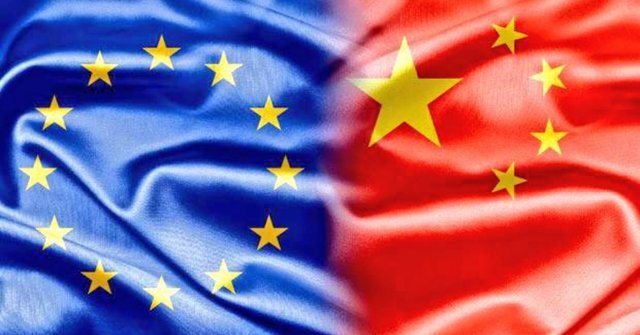China, EU agree to safeguard nuclear deal

Chinese State Councilor and Foreign Minister Wang Yi and European Union foreign policy chief Federica Mogherini agreed on Thursday to continue safeguarding the 2015 nuclear deal, formally known as the Joint Comprehensive Plan of Action.
Both sides also agreed to safeguard the United Nations-centered multilateralism and oppose the campaign of “maximum pressure,” while calling on relevant parties to maintain restraint and prevent the escalation of the situation, Xinhua reported.
Britain, France, Germany, Russia, China, and Iran have been trying to salvage the pact since the U.S. withdrew from it in May 2018 and returned sanctions.
The European Union announced on June 28 that its special purpose vehicle for trade with Iran, known as INSTEX, has gone into effect.
Tehran says the mechanism is far short of Iran’s expectation. Iran has been insisting that the mechanism should include Iran’s oil purchases.
The remaining JCPOA parties held an emergency meeting in Vienna on Sunday to discuss Iran’s moves in reducing its nuclear commitments and explore ways to save the nuclear deal.
Abbas Araghchi, the deputy foreign minister and a top nuclear negotiator who represented Iran in the meeting, called the talks “constructive”. However, he warned Iran would continue to reduce its nuclear commitments if Europeans failed to salvage the pact.
“The atmosphere was constructive. Discussions were good. I cannot say that we resolved everything, I can say there are lots of commitments,” the senior nuclear negotiator told Reuters.
Helga Schmid, secretary general of the European External Action Service (EEAS), also issued a statement on Sunday saying that “participants reaffirmed their continued commitment to preserving the JCPOA.”
In a phone conversation with his French counterpart Emmanuel Macron on Tuesday, President Hassan Rouhani said the first step that Europe should take to save the nuclear deal is to normalize oil and banking ties.
“Unfortunately, despite Iran’s full commitment to its obligations, only a small part of Iran’s economic interests has been met, and after the withdrawal of the United States, we have not only not seen any serious action by Europe in this respect, but also some European companies left Iran following United States’ unilateral sanctions,” Rouhani stated.
Donald Trump withdrew the U.S. from the UN-endorsed JCPOA in May 2018 and imposed the toughest ever sanctions against Iran in line with his administration’s “maximum pressure” policy against Tehran.
On May 8, exactly one year after the U.S. withdrew from the multi-nation nuclear agreement and reimposed sanctions on Iran, Tehran said its “strategic patience” is over and announced a partial withdrawal from some aspects of the pact, saying that the country would no longer adhere to some of the limits on its nuclear activities. It also threatened to step up uranium enrichment if an agreement is not made within 60 days to protect it from the sanctions’ effects.
In follow-up to that deadline, on July 7 Iran announced that it has started enriching uranium to a higher purity than the 3.67% as the Europeans missed the 60-day deadline to devise a concrete mechanism to protect the country from the U.S. sanctions.
NA/PA
Leave a Comment